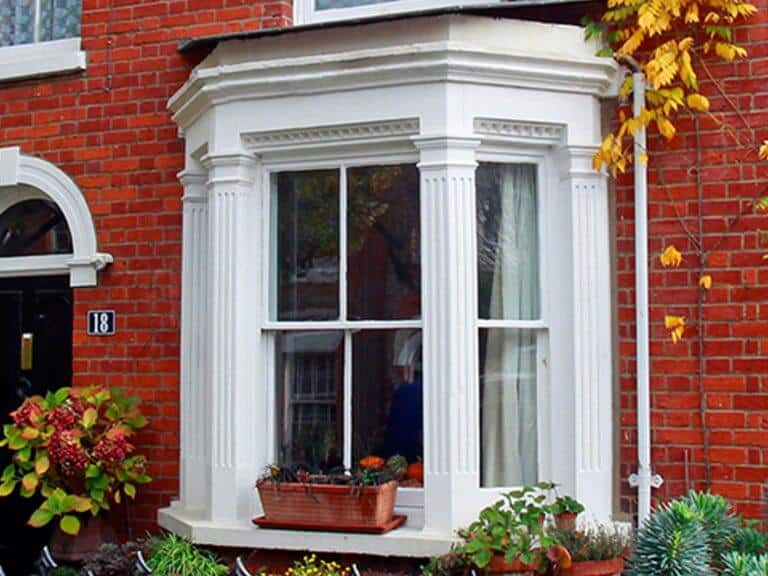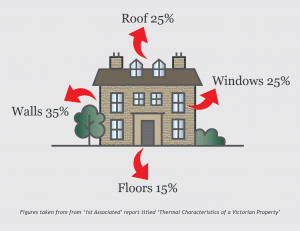What is Window Energy Efficiency, and Why is it Important?

The importance of energy efficiency
‘Energy efficiency’ is often talked about these days. It’s a buzzword at the moment because of rising fuel costs and an increasing awareness of climate change. But what does it mean?
Energy efficiency refers to our gas and electricity bills and is the opposite of wasting money. It could be used to refer to LED lightbulbs which are far more efficient than the traditional incandescent bulbs that we all used. Another key development in the improvement of energy efficiency is thermal insulation. This insulation stops our home from leaking heat, therefore reducing our fuel spend. This insulation could be in the form of wall cavity insulation, loft insulation, or through the introduction of energy efficient windows.
Timber Window Energy Efficiency: A Green Revolution in UK Homes
Embracing Sustainability with Timber Windows
The Rise of Timber Windows
Timber windows have emerged as frontrunners in the pursuit of sustainable and energy-efficient home solutions. As the world grapples with environmental concerns, homeowners in the United Kingdom are increasingly turning to timber windows to reduce their carbon footprint and enhance the energy efficiency of their dwellings.
Understanding Timber Window Energy Efficiency
Natural Insulation Properties
One of the key contributors to the energy efficiency of timber windows lies in their inherent insulating properties. Timber is a natural insulator, providing an effective barrier against heat loss in colder months and heat gain during warmer seasons. This natural insulation translates to reduced reliance on artificial heating and cooling systems, leading to lower energy consumption.

Heat loss in your home
Thermal Performance
Timber windows are designed with a focus on thermal performance. The construction of these windows incorporates advanced technologies and techniques to ensure minimal heat transfer. This results in homes that are better equipped to maintain a comfortable temperature year-round, promoting energy efficiency and reducing the overall environmental impact.
The Environmental Advantages of Timber
Sustainable Sourcing
Timber windows contribute to sustainability by relying on responsibly sourced materials. Reputable manufacturers adhere to strict forestry guidelines, ensuring that the wood used in window production is harvested from sustainably managed forests. This commitment to sustainable sourcing not only preserves natural ecosystems but also supports the longevity of timber as a renewable resource.
Carbon Sequestration
Timber possesses the unique ability to sequester carbon dioxide. As trees grow, they absorb carbon dioxide from the atmosphere and store it in their wood. When timber is used in construction, it continues to store carbon, preventing it from being released back into the environment. This inherent carbon sequestration feature adds to the eco-friendly credentials of timber windows.
Energy-Efficient Design and Construction
Double Glazing and Draught Sealing
Timber windows are often equipped with double glazing, a design element that enhances their energy efficiency. The gap between the panes acts as an additional insulating layer, reducing heat transfer. Additionally, meticulous attention to detail in construction, including effective draught sealing, ensures that timber windows create a tight seal against external elements, minimizing energy wastage.
Longevity and Low Maintenance
Investing in timber windows is not only a commitment to energy efficiency but also a pledge to durability. High-quality timber, when properly maintained, can have a lifespan that surpasses alternative materials. This longevity reduces the need for frequent replacements, decreasing the overall environmental impact associated with window production and disposal.
The Future of Sustainable Living
Integrating Timber Windows into Modern Lifestyles
Timber window energy efficiency is not merely a trend but a sustainable choice that aligns with the evolving ethos of modern living. As homeowners in the UK seek ways to reduce their ecological footprint, timber windows stand as a symbol of responsible construction and energy-conscious living.
In sustainable housing, timber windows emerge as champions of energy efficiency. With their natural insulation properties, sustainable sourcing, and energy-efficient design, timber windows are redefining the way we approach home construction. As the UK continues its journey towards a greener future, the adoption of timber windows is a significant stride towards creating homes that are both environmentally conscious and comfortable for generations to come.
Energy efficient sash windows
Energy efficient sash windows can significantly improve the efficiency of your home. Ventrolla offers new sash windows which include double-glazing and the Ventrolla Perimeter Sealing System (VPSS) to draft-proof your windows to an incredible standard. They also offer a sash window restoration service where existing sash windows can be made more efficient through the replacement of single pane glass with slim double-glazed panes.
Window energy ratings
Ventrolla windows are tested to British Standards (BS) 7386:1900 and 6375:1-2009 which are one of the most demanding European Quality standards. The VPSS has been independently shown to improve the Window Energy Rating by up to 30%.
Energy savings
Energy efficient double glazing is estimated to save £110-£140 per year in the UK. Over the life of the window, this would be the equivalent saving of thousands of pounds.
It makes great sense to improve the energy efficiency of your home with double glazed sash windows from Ventrolla. If you’d like any more information, please speak with our experts.
